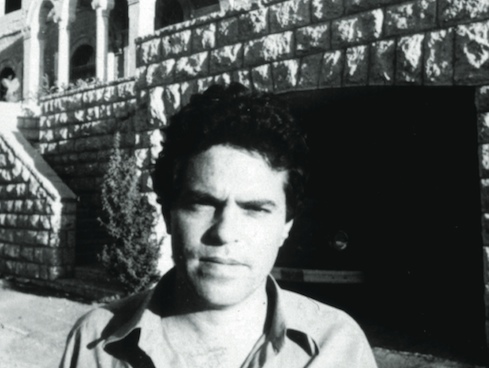House (Gitai)

Full Description
House is Amos Gitai’s landmark 1980 documentary about a stone house in West Jerusalem that changed hands with changes in government. It was deemed too controversial, by Israeli television, which, despite having produced the film, would not broadcast it. Beautifully shot in black & white, the film focuses on Palestinian stonecutters hewing building blocks at a stone quarry and working on the building. The house (which functions as both a character and a metaphor) holds different meanings for both the people who worked on it and those who lived there, including: the Palestinian Dajani family who owned it until 1948; the Algerian Jewish couple who acquired it in 1956; the Ashkenazi professor who is the current owner; the Iraqi Jewish contractor; and the stonecutter from near Beit Jalah, who won’t give his name but responds to Gitai’s thoughtful questions with undemanding honesty.
Filmmaker Bio(s)
For over 20 years, Amos Gitai has brought to the screen images of the Jewish Diaspora and Israeli life alike. Employing both documentary and fictional styles, Gitais uses the camera to reveal history in all its contradictions and ambivalence.
He challenges us, the audience, to scrutinize history anew. Using landscape as a pictorical reference, Gitai traverses time and space to posit not merely a personal experience but a universal one that speaks of migration, struggle and alienation.
In 1973, during the Yom Kippur War, a Red Cross helicopter Gitai was in was shot down by Syrian forces. Following this, Gitai began using his camera as a means of recording and questioning the historical and political events around him. Both his documentaries and his dramatic films present a brutally honest reality, one bejeweled with political conflict, personal plight and a search for meaning. It is a reality that we recognize both as individuals and as members of the larger society.
Amos Gitai was born in Haifa in 1950. Between 1971 and 1975, Amos Gitai studied architecture in the Israel Institute of Technology, and also created his first 8- and 16-mm films. He continued his architecture studies at the University of California in Berkeley where he specialized in the theory of vernacular architecture, and received his Ph.D. in 1986.
In 1977 he began working for Israeli television, where he made several documentaries. After two of his films, Political Myths and House, were censored by the TV authorities, and when Field Diary, shot shortly before and during the Lebanon War, met with much hostility, Gitai moved in 1982, to Paris. From Paris, Gitai continued studying themes of exile, emigration and geography, creating films exceeding the bounds of traditional genre defitions of narrative.
Director(s)
Country(ies)
Language(s)
w/English Subtitle
Release Year
Festival Year(s)
Running Time
51

